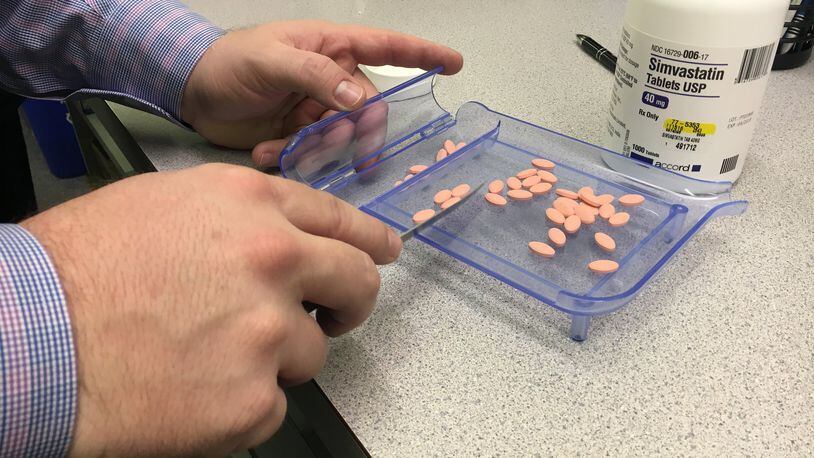The campaign is expected to be one of the most expensive ever in Ohio, with both sides already airing frequent TV and radio ads.
A similar ballot issue in California last year, saw the pro side spend $20 million in advertising and opponents spend $111 million. The issue failed there 53 to 47 percent.
Issue 2 would require that the state pay the same or lower prices for prescription drugs as the U.S. Department of Veterans Affairs — which currently negotiates drug prices 20 to 24 percent less than other agencies.
MORE: Ohio's drug price ballot issue: What's really going on?
It would forbid any state agency — Medicaid, state prisons, state employee retirement systems and mental health facilities for example — from entering into a purchase agreement with drug manufacturers unless the net cost of the drug is the same or less than the VA pays.
Proponents say this measure would save taxpayers $400 million annually and reduce prescription costs for the 36 percent of Ohioans who get health insurance through a state agency or program.
Opponents say Issue 2 will raise rather than lower drug prices, including for veterans, while reducing patient access to needed medicines. They also say the measure would be nearly impossible to implement and will lead to lawsuits and bureaucratic red tape.
RELATED: Consumers kept in the dark over drug pricing
The “Yes on Issue 2” campaign, run by Ohio Taxpayers for Lower Drug Prices has received nearly $3.7 million in contributions, almost entirely from the California nonprofit spearheading the initiative — the AIDS Healthcare Foundation.
The foundation provides testing and treatment for HIV and AIDS patients around the globe and runs two Ohio clinics in Columbus and Cleveland.
Beyond the foundation’s contributions, the yes campaign listed 10 donations from individuals, between $1 and $50 each.
The Yes campaign has spent $3 million on media advertising so far.
“We’re trying to be as open and as transparent as we can possibly be,” said “Yes on Issue 2” spokesman Dennis Willard.
“We’re not surprised by the amount of money that greedy drug companies are putting into this campaign of lies and distortions,” he said. “They know that voters in Ohio are angry about the out of control drug prices... We believe that our effort to lower drug prices for 4 million Ohioans and save taxpayers $400 million will eventually empower voters to say yes.”
RELATED: High cost of prescriptions puts some drugs out of reach
The “No on Issue 2” campaign’s $15.8 million in donations came from only one source, according to its filing, an LLC that is a subsidiary of PHRMA, the Pharmaceutical Research and Manufacturers of America.
PHRMA is a trade group representing the nation’s largest biopharmaceutical research companies.
The No campaign has spent $9.7 million so far, mostly on advertising.
Campaign spokesman Dale Butland said they are not hiding the fact that the campaign is funded by drug makers.
“We’ve said from the very beginning that PHRMA is funding this campaign,” he said.
The organizations opposed to the measure, which include hospitals, nurses, doctors and pharmacists as well as veterans groups, can’t afford to spend millions, Butland said.
“No matter what you think of pharma, no matter what you think of the prices they charge for drugs, or the salaries they pay themselves... none of those things will be on the ballot this fall,” Butland said. “What will be on the ballot is a very specific ballot initiative that will do very specific, harmful things to our state.”
More prescription price coverage:
Million-dollar drug keeps local woman alive
Prescription drug discounts may contain catch
Insulin makers accused of price-fixing scheme
$180,000 price tag for Miami Twp. boy's prescription
About the Author
